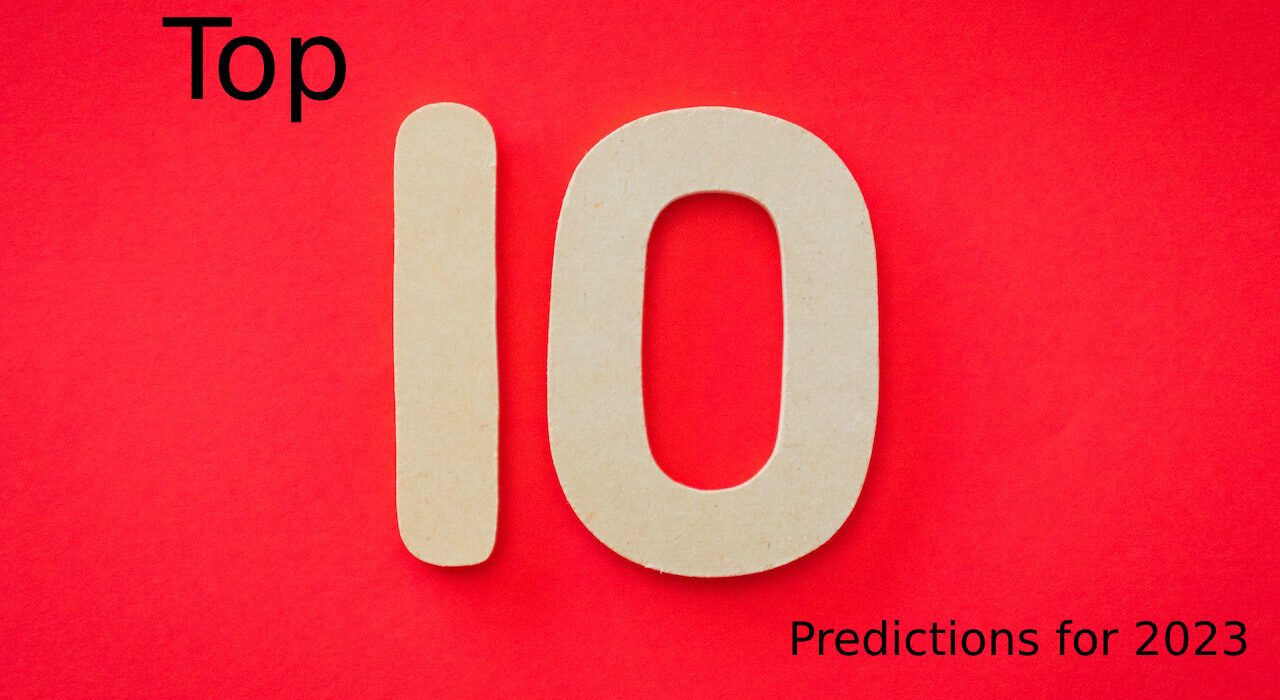As we approach the year 2023, the healthcare industry is poised to undergo significant changes driven by emerging technologies, demographic shifts, and evolving patient needs. From AI-powered medical devices to virtual care platforms, here are the top 10 healthcare industry predictions for 2023.
-
Rise of AI-powered medical devices
Artificial intelligence (AI) is poised to revolutionize the medical device industry by enabling devices to learn from data and make intelligent decisions. In 2023, we can expect to see a surge in AI-powered medical devices that can analyze patient data, diagnose diseases, and personalize treatment plans. These devices have the potential to improve patient outcomes, reduce healthcare costs, and streamline the delivery of care.
-
Expansion of virtual care platforms
The COVID-19 pandemic accelerated the adoption of virtual care platforms, and this trend is expected to continue in 2023. With advancements in telemedicine technology, patients can receive care remotely, including consultations, diagnoses, and prescription refills. Virtual care platforms can increase access to care, particularly for patients in remote or underserved areas, and reduce the burden on healthcare facilities.
-
Personalized medicine for cancer treatment
Precision medicine, or personalized medicine, is an emerging field that uses genetic information to tailor treatments to individual patients. In 2023, we can expect to see significant progress in personalized medicine for cancer treatment, with the development of targeted therapies based on a patient’s genetic makeup. This approach can improve treatment outcomes and reduce side effects.
-
Expansion of digital therapeutics
Digital therapeutics are software-based interventions that can improve patient outcomes and reduce healthcare costs. In 2023, we can expect to see the expansion of digital therapeutics for a range of conditions, including mental health, chronic diseases, and addiction. These interventions can provide patients with personalized care and reduce the need for in-person visits.
-
Increasing use of wearables and sensors
Wearable devices and sensors are becoming increasingly common in healthcare, providing patients and healthcare providers with real-time data about a patient’s health status. In 2023, we can expect to see the adoption of wearables and sensors increase, with the development of new devices that can monitor a range of health metrics, including blood pressure, heart rate, and sleep patterns.
-
Emphasis on population health management
Population health management is an approach to healthcare that focuses on improving the health outcomes of entire populations, rather than just individual patients. In 2023, we can expect to see an increased emphasis on population health management, with the development of new tools and technologies that can identify health risks and enable targeted interventions.
-
Adoption of blockchain technology
Blockchain technology has the potential to transform the healthcare industry by enabling secure and transparent sharing of patient data. In 2023, we can expect to see an increase in the adoption of blockchain technology, with the development of new platforms that can enable secure data sharing between healthcare providers, patients, and researchers.
-
Growth of precision nutrition
Precision nutrition is an emerging field that uses data to tailor nutrition recommendations to individual patients. In 2023, we can expect to see the growth of precision nutrition, with the development of new tools and technologies that can analyze a patient’s genetic and health data to provide personalized nutrition recommendations.
-
Increased focus on mental health
Mental health is a growing concern globally, and in 2023, we can expect to see an increased focus on mental health in the healthcare industry. This may include the development of new digital therapeutics, virtual care platforms, and personalized treatment plans for mental health conditions.
-
Demographic shifts driving change
Demographic shifts, including an aging population and increasing diversity, are expected to drive significant changes in the healthcare industry in 2023. Healthcare providers will need to adapt to the changing needs of their patient populations, including the development of culturally sensitive care and the provision of services that cater to the needs of elderly patients.
These predictions represent just a few of the changes that are expected to shape the healthcare industry in 2023. While the future of healthcare is uncertain, these trends suggest that technology and data will play an increasingly important role in improving patient outcomes and reducing healthcare costs. As the industry continues to evolve, it will be important for healthcare providers to stay abreast of the latest developments and adapt their practices to meet the changing needs of their patients.
In conclusion
The healthcare industry is set to undergo significant changes in the coming years, with emerging technologies and demographic shifts driving innovation and transformation. From AI-powered medical devices to virtual care platforms, the industry is poised to become more patient-centered, data-driven, and efficient. While these changes may present challenges for healthcare providers, they also offer opportunities to improve patient outcomes and reduce healthcare costs. By embracing these trends and investing in new tools and technologies, healthcare providers can position themselves for success in the rapidly evolving healthcare landscape of 2023 and beyond.





